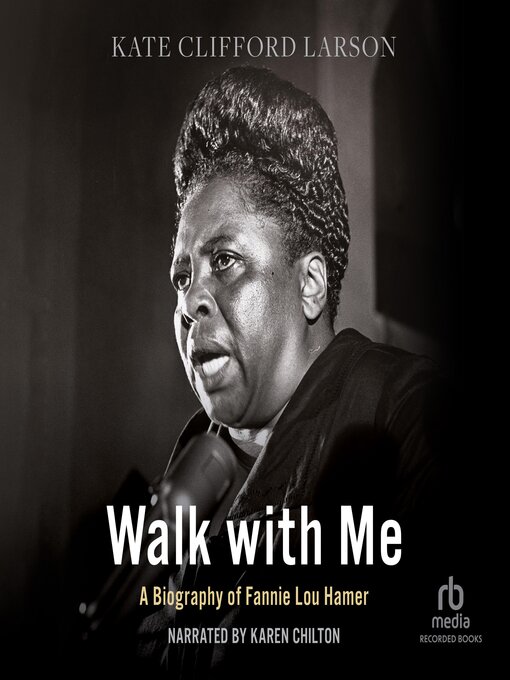- Outdoorsy & Travel
- Most Popular Magazines
- Food & Cooking Magazines
- Home & Garden
- Explore Your Inner Artist
- Celebrity & Pop Culture
- Health & Fitness
- Business, News & Politics
- Comics, Gaming and More!
- Things That Move Us All
- Lifestyle
- Movies, TV & Music
- Sports Magazines
- See all magazines collections

And so Fannie Lou Hamer lifted up her voice. Starting in the early 1960s and until her death in 1977, she was an irresistible force, not merely joining the swelling wave of change brought by civil rights but keeping it in motion. Working with the Student Non-Violent Coordinating Committee (SNCC), which recruited her to help with voter-registration drives, Hamer became a community organizer, women's rights activist, and co-founder of the Mississippi Freedom Democratic Party. She summoned and used what she had against the citadel—her anger, her courage, her faith in the Bible, and her conviction that hearts could be won over and injustice overcome. She used her brutal beating at the hands of Mississippi police, an ordeal from which she never fully recovered, as the basis of a televised speech at the 1964 Democratic Convention, a speech that the mainstream party—including its standard-bearer, President Lyndon Johnson—tried to contain. But Fannie Lou Hamer would not be held back. For those whose lives she touched and transformed, for those who heard and followed her voice, she was the embodiment of protest, perseverance, and, most of all, the potential for revolutionary change.
Kate Clifford Larson's biography of Fannie Lou Hamer is the most complete ever written, drawing on recently declassified sources on both Hamer and the civil rights movement, including unredacted FBI and Department of Justice files. It also makes full use of interviews with Civil Rights activists conducted by the Smithsonian and the Library of Congress, and Democratic National Committee archives, in addition to extensive conversations with Hamer's family and with those with whom she worked most closely. Stirring, immersive, and authoritative, Walk with Me does justice to Fannie Lou Hamer's life, capturing in full the spirit, and the voice, that led the fight for freedom and equality in America at its critical moment.
"This biography of Fannie Lou Hamer, the civil-rights advocate who challenged Mississippi segregationists with her powerful oratory and 'unforgettable' singing, places grassroots organizing by women at the heart of the battle for Black enfranchisement."—The New Yorker
-
Creators
-
Publisher
-
Release date
January 18, 2022 -
Formats
-
OverDrive Listen audiobook
- ISBN: 9781705050101
- File size: 392613 KB
- Duration: 13:37:56
-
-
Languages
- English
-
Reviews

Loading
Formats
- OverDrive Listen audiobook
Languages
- English
Why is availability limited?
×Availability can change throughout the month based on the library's budget. You can still place a hold on the title, and your hold will be automatically filled as soon as the title is available again.
The Kindle Book format for this title is not supported on:
×Read-along ebook
×The OverDrive Read format of this ebook has professional narration that plays while you read in your browser. Learn more here.